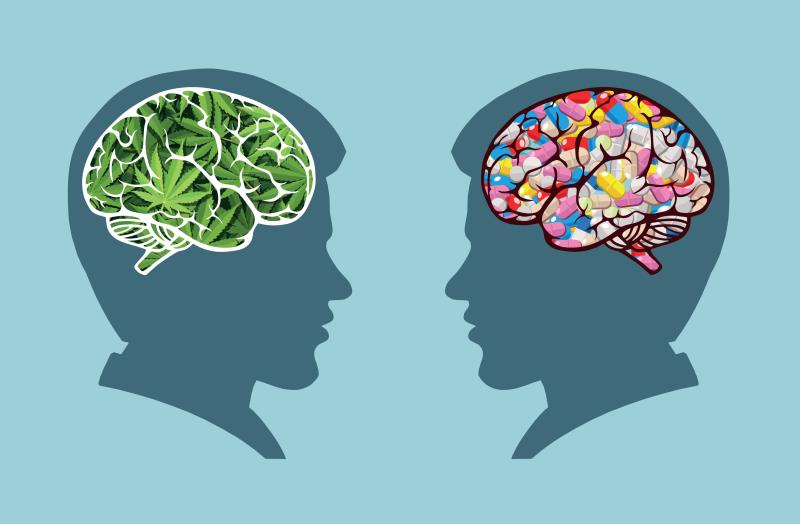
Evidence to support the use of pharmaceutical cannabinoids in the treatment of mental disorders is lacking, a recent systematic review and meta-analysis showed.
“There is a notable absence of high-quality evidence to properly assess the effectiveness and safety of medicinal cannabinoids compared with placebo, and until evidence from [randomized controlled trials (RCTs)] is available, clinical guidelines cannot be drawn up around their use in mental health disorders,” noted study lead author Professor Louisa Degenhardt from the National Drug and Alcohol Research Centre, University of New South Wales, Sydney, Australia.
Degenhardt and co-authors reviewed 83 studies (including 40 RCTs [n=3,067]) involving adults who used a medicinal cannabinoid formulation as part of treatment for depression (23 RCTs), anxiety (17 RCTs), Tourette syndrome (two RCTs), ADHD (one RCT), PTSD* (one RCT), or psychosis (six RCTs), be it as primary diagnosis or secondary to another condition.
The RCTs showed no significant improvement in depression symptoms with the use of pharmaceutical tetrahydrocannabinol (THC) with or without cannabidiol (CBD) vs placebo or active comparators. [Lancet Psychiatry 2019;doi:10.1016/S2215-0366(19)30401-8]
Among individuals with anxiety secondary to other medical conditions (mainly chronic non-cancer pain and multiple sclerosis), pharmaceutical THC with or without CBD improved symptoms of anxiety compared with placebo (standardized mean difference [SMD], -0.25, 95 percent confidence interval [CI], -0.49 to -0.01). However, these findings were based on seven studies (n=252) with a very low evidence quality as per GRADE** and could be attributed to improvements in the primary condition.
One study (n=24) demonstrated a worsening of the negative symptoms of psychosis (SMD, 0.36, 95 percent CI, 0.10–0.62) and in cognitive functioning (SMD, 1.08, 95 percent CI, 0.71–1.45) with pharmaceutical THC with or without CBD.
Conversely, one RCT of patients with PTSD (n=10) demonstrated a significant improvement in global functioning and nightmare frequency with pharmaceutical THC with or without CBD compared with placebo.
In all the mental disorders assessed, pharmaceutical THC with or without CBD did not affect other primary outcomes assessed. However, it was associated with increased adverse event (AE) incidence (odds ratio [OR], 1.99, 95 percent CI, 1.20–3.29; 10 studies, n=1,495) and AE-related withdrawals (OR, 2.78, 95 percent CI, 1.59–4.86; 11 studies, n=1,621) vs placebo, regardless of mental disorder.
“Our findings have important implications in countries where cannabis and cannabinoids are being made available for medical use,” she added. “[D]octors and patients must be aware of the limitations of existing evidence and the risks of cannabinoids. These must be weighed when considering use to treat symptoms of common mental health disorders. Those who decide to proceed should be carefully monitored for positive and negative mental health effects of using medicinal cannabinoids.”
The mechanism of action of cannabinoids in improving symptoms of mental disorders also remains uncertain, considering that the six disorders in this study “share no obvious common pathophysiology,” commented Professor Deepak Cyril D’Souza from Yale University School of Medicine, New Haven, Connecticut, US. [Lancet Psychiatry 2019;doi:10.1016/S2215-0366(19)30375-X]
Dosing strategies and treatment duration also need to be established, he said.
Despite the limitations presented by the small study populations and between-study heterogeneity, “the use of cannabinoids as treatments for mental disorders cannot be justified at this time,” concluded Degenhardt and co-authors, highlighting the need for RCTs assessing the impact of medicinal cannabinoids in psychiatric disorders.